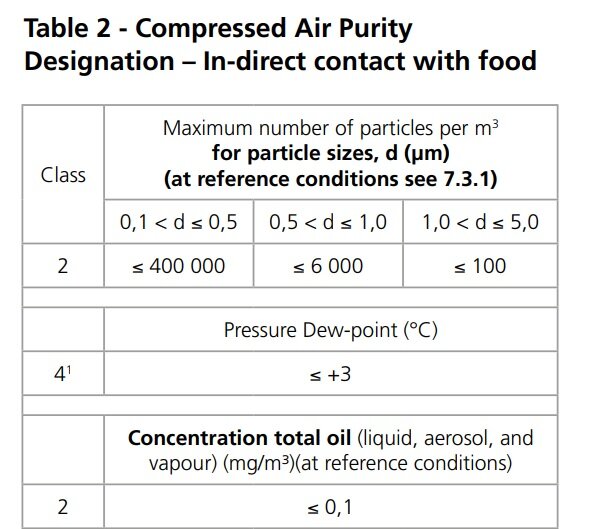
Air Quality Testing
Good compressed air quality can play a key role in ensuring a safe, premium end product. This is why the ‘British Compressed Air Society’ (BCAS) recommend that any compressed air in critical applications should follow ISO 8573-1:2010.
Microbial
At ACT we can test for ISO 8573-7. This relates to the total viable counts of micro-organisms collected on agar strips. This testing is especially important for food and pharmaceutical factory’s where bacteria could harm the product or even the end user.
Direct Contact
Any compressed air coming into direct contact with food/beverage should meet ISO 8573-1:2010 [2:2:1].
This means that the air should contain (see table 1)
In-Direct Contact
Any compressed air coming into in-direct contact with food/beverage should meet ISO 8573-1:2010 [2:4:2].
This means that the air should contain (see table 2)
Did you know???
Not only do we test, but we also can write up a specification for what you need testing to.

What do we test?
Oil
We can check for oil in air by taking a sample of compressed air and testing for any traces.
Particle
We test for particles down to 0.3 microns. This work is carried out using one of our specialist airborne particle testing instruments.
Microbial
To test for the presence of micro biological organisms we take samples of the compressed air and send them to be analysed by an independent laboratory.
Dew Point
We can test for pressure due point in a compressed air system. This is done by using one of our calibrated probes to ensure that your system reaches the recognised standard.







